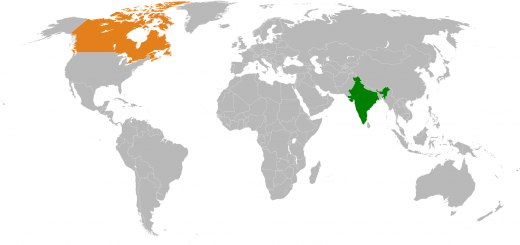The Supreme Court Agrees To Hear Moses v. Canada
The practice of environmental law in Canada has always been fraught with an unanswered question: which level(s) of government have the power to regulate environmental issues? The Supreme Court this week agreed to hear an appeal in Moses v. Canada, 2008 QCCA 741, a noteworthy case where the environmental assessment of a proposed vanadium mine in northern Quebec was called into question as to whether assessment was the rightful duty of the federal government, the provincial government, or (as Chief Ted Moses and the Eeyou Itschee Crees believed) both.
Moses is a complex case because there is as yet no firm division in Canadian law as to which level of government has specific dominion over environmental policy. The traditional question has of course been whether the provinces’ right to regulate property under s.92(13) of the Constitution Act, 1867, as well as their right to manage public lands under s.92(5) and their general power over “matters of a merely local… nature” in s.92(16), gives them first crack at environmental regulatory powers, or whether the nature of the environment’s potential borderlessness with regards to many hazards make it a fit exercise of the national concern federal power. Although there have been cases which have stated whether specific environmental issues are of federal or provincial concern, there as yet has been no defining single case to create a firm legal test as to whether a given environmental issue is federal or provincial in scope.
Is Moses that case? The Quebec Court of Appeal, in its decision, agreed with the position of Chief Ted Moses and the Crees that the mining project in question was subject to both provincial and federal assessment. The province (seeking sole jurisdiction over the project) argued that Friends of the Oldman River, [1992] 1 S.C.R. 3, served as precedent in this case because Oldman served to limit federal agencies from inquiry into matters exclusively under provincial jurisdiction. However, the Quebec Court of Appeal disagreed, because it found that the wording of the Canadian Environmental Assessment Act was quite similar to the wording of the Guidelines Act which was at issue in Oldman, and that thus the federal inquiry served only to concern itself with matters under federal jurisdiction.
The QCA’s decision in Moses is one that concerns itself primarily with statutory interpretation. However, the larger issues of intergovernmental conflict remain ripe to be addressed. Perhaps the Supreme Court’s decision to hear the appeal in Moses is a sign that finally, the question of environmental jurisdiction will be settled for once and for all.







Join the conversation